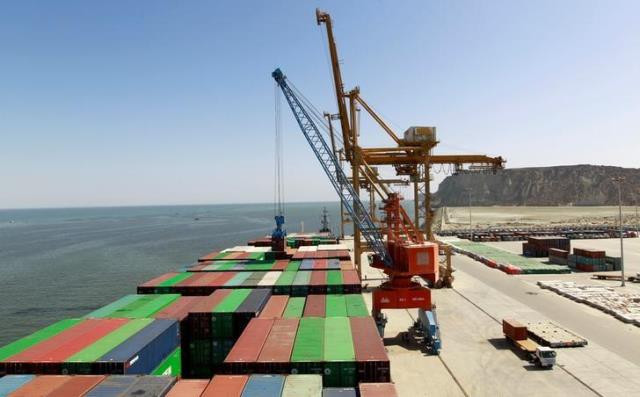CPEC — unforeseen consequences
It is undeniable that the new road is having a significant environmental impact

A container is loaded on to the Cosco Wellington, the first container ship to depart after the inauguration of the China Pakistan Economic Corridor port in Gwadar November 13, 2016. PHOTO: REUTERS
Credible these claims are or not, it is undeniable that the new road is having a significant environmental impact. A tribal jirga has given until July 5th for their demands to be met, and if they are not then work beyond Battagram will be blocked. Local people are adamant that they are not opposed to the construction of the road per se, but they feel compensation has been insufficient and the environmental impact poorly assessed. Up to 5,000 families are going to have to relocate from 120 villages. The Forest Department says that over 27,000 trees have been felled with another 50,000 to follow. The K-P Environment Protection Agency has not seen it fit to share the results of the Impact Assessment it made in 2013. In environmental terms, the region has fragile ecosystems and is vulnerable to climate change. The Hindu Kush generally is suffering as the result of climate change. Change for the better by all means, but not at the expense of treasures we can ill-afford to lose — and are irreplaceable.
Published in The Express Tribune, July 1st, 2017.
Like Opinion & Editorial on Facebook, follow @ETOpEd on Twitter to receive all updates on all our daily pieces.
















COMMENTS
Comments are moderated and generally will be posted if they are on-topic and not abusive.
For more information, please see our Comments FAQ